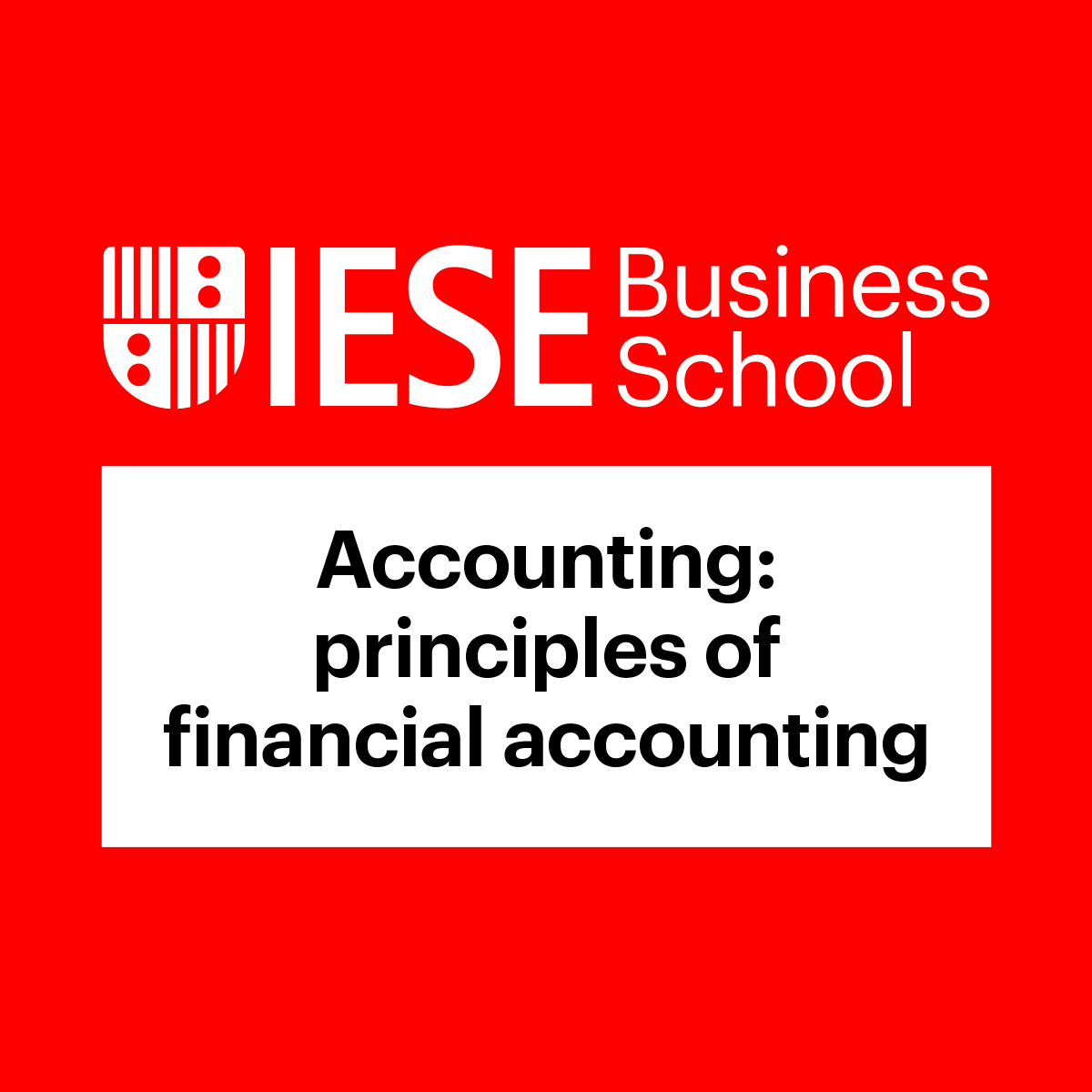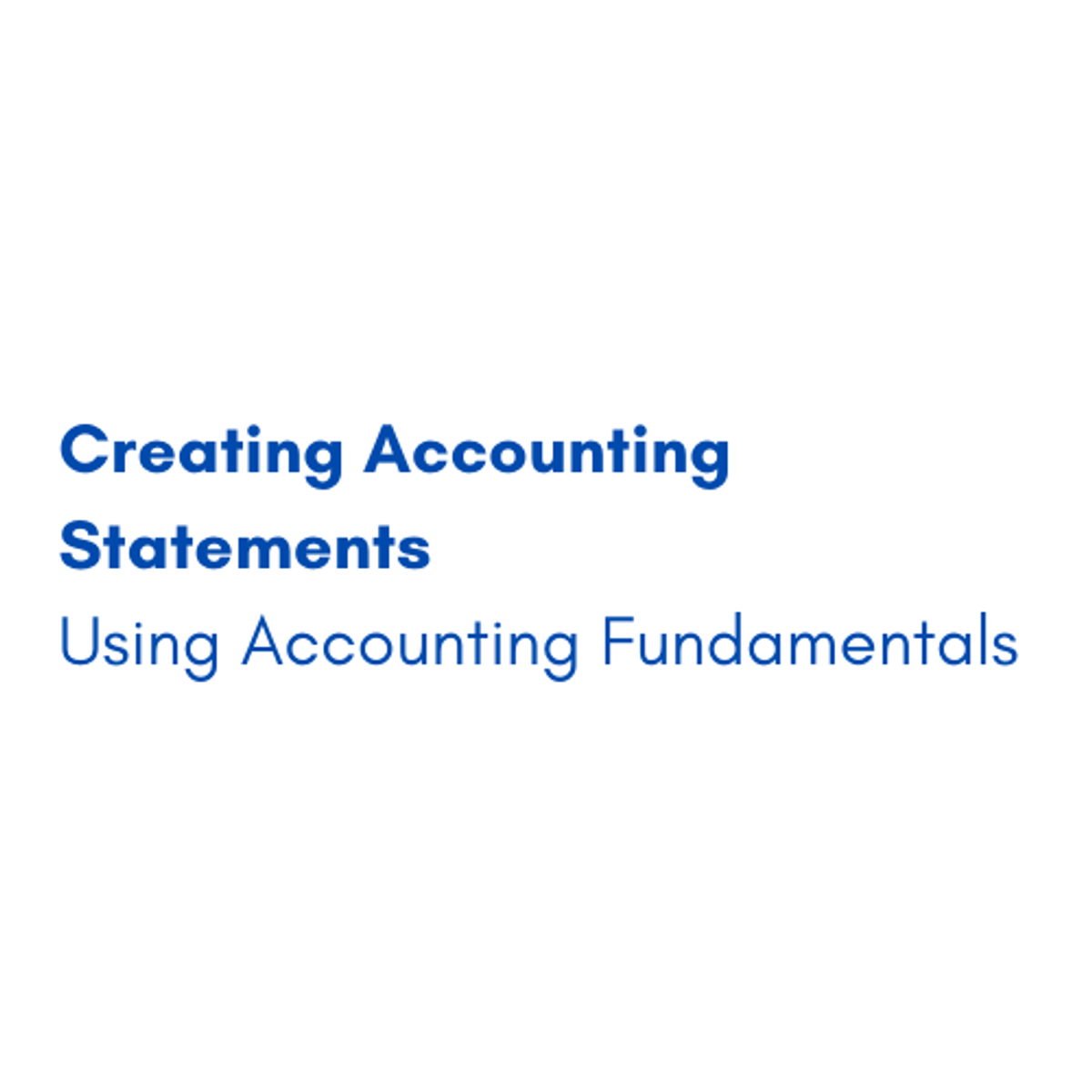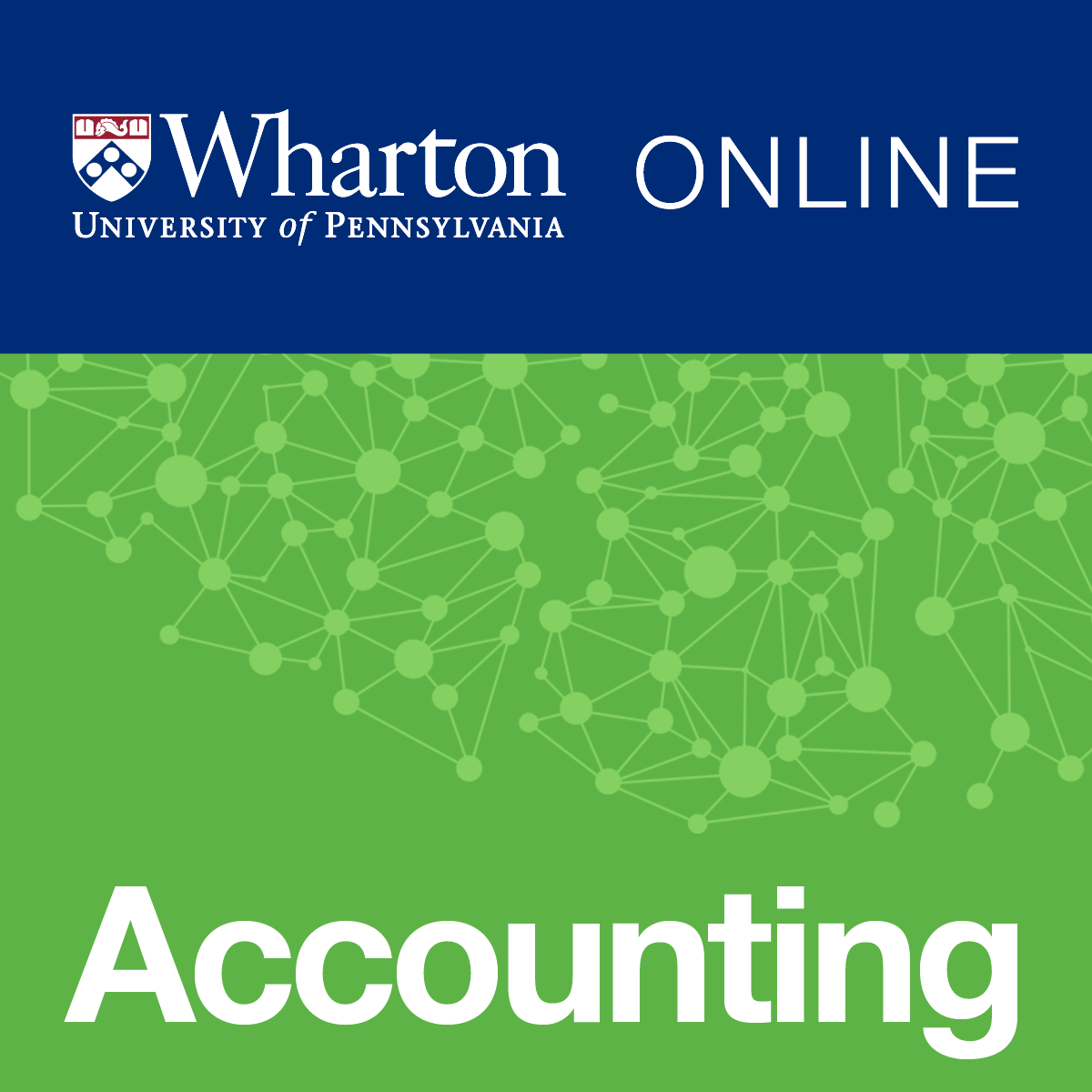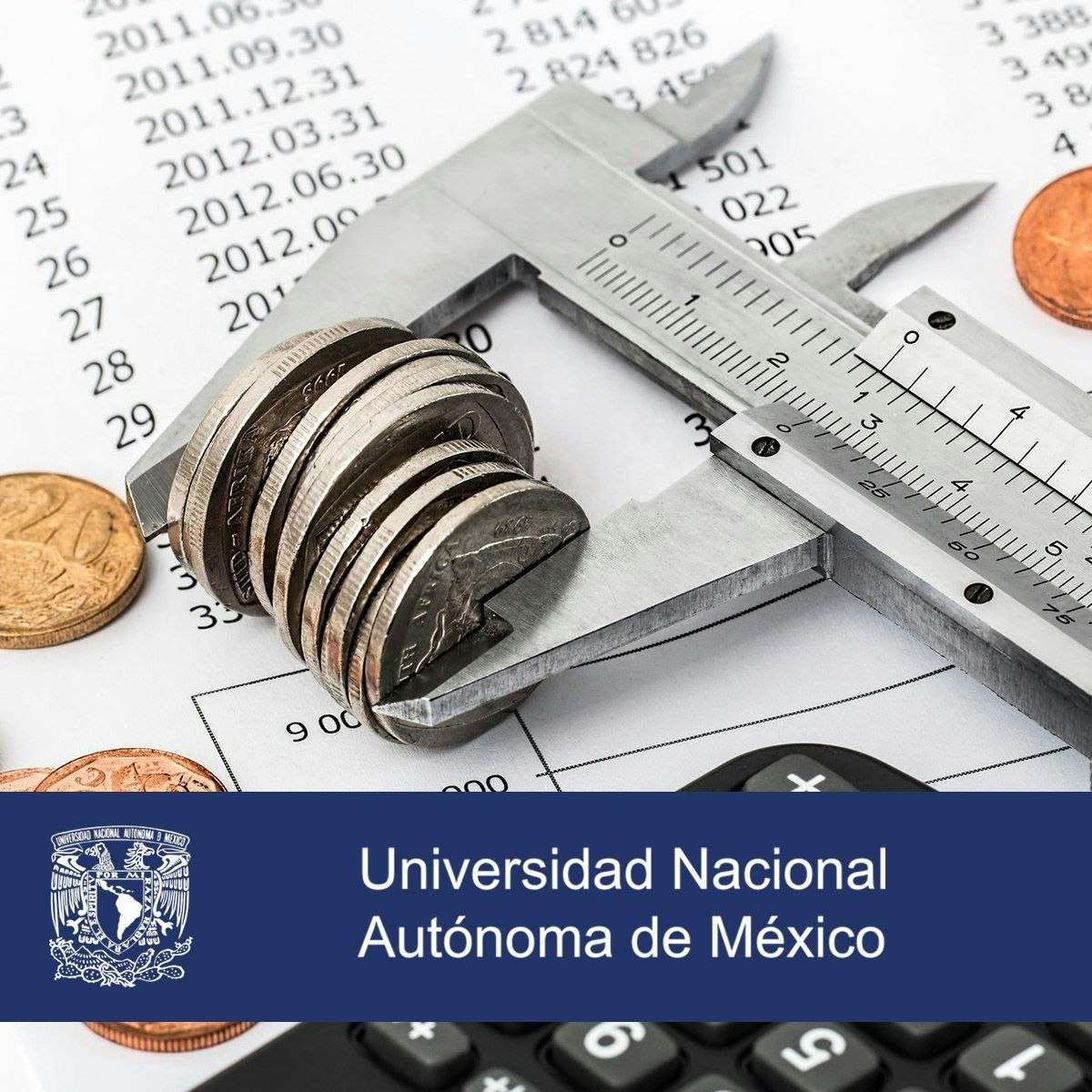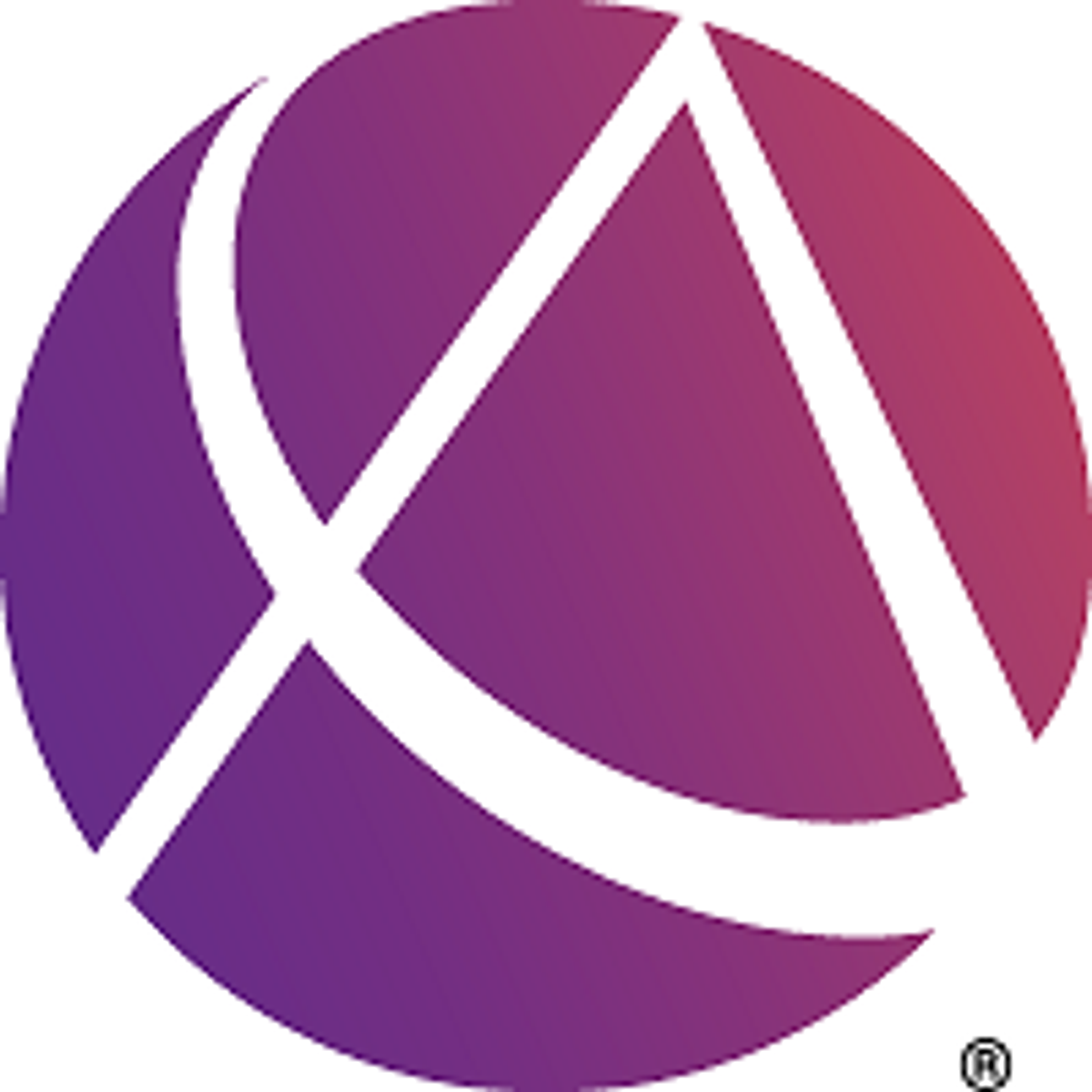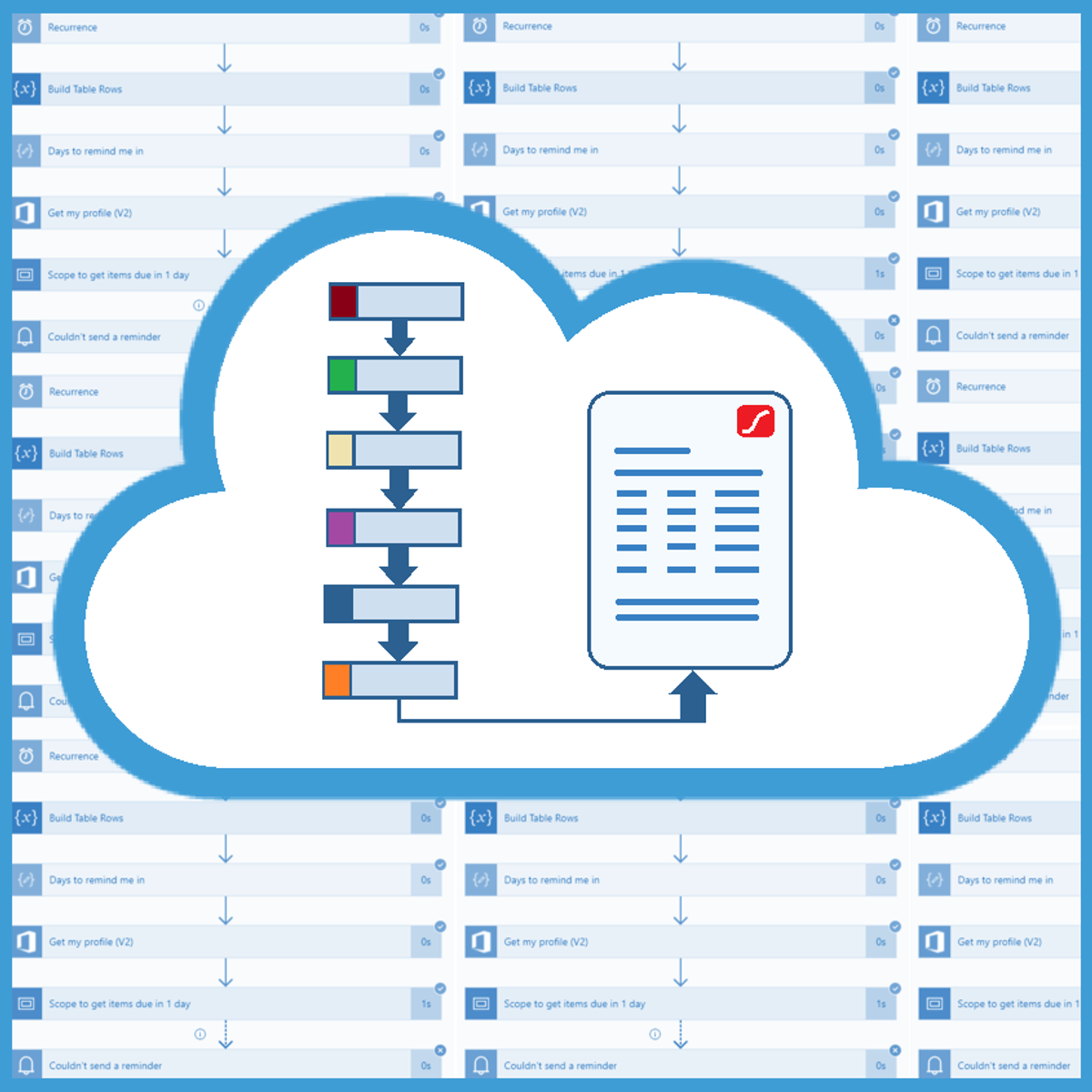Accountant
Becoming an Accountant: A Comprehensive Career Guide
Accounting is often called the language of business. It's the system used to record, analyze, and report financial transactions for individuals, businesses, and other organizations. Accountants play a crucial role in ensuring financial accuracy, compliance with regulations, and providing insights that guide strategic decisions. They are the stewards of financial information, helping entities track performance, manage resources, and plan for the future.
Working as an accountant can be intellectually stimulating. You might find satisfaction in solving complex financial puzzles, ensuring the integrity of financial data, or helping businesses navigate intricate tax laws. The field offers diverse paths, from auditing major corporations to managing the finances of a small non-profit or even specializing in forensic accounting to uncover financial fraud. It's a career built on precision, ethical judgment, and a deep understanding of how money flows.
Overview of the Accountant Role
This section provides a foundational understanding of what accountants do, where they work, and the different specializations within the field. It’s designed to give a clear picture for those new to the concept of accounting.
What Accountants Do: Core Functions
At its core, accounting involves the systematic recording, reporting, and analysis of financial transactions. Accountants prepare financial statements like the balance sheet, income statement, and cash flow statement, which provide a snapshot of an organization's financial health. They ensure these records are accurate and comply with relevant accounting standards, such as Generally Accepted Accounting Principles (GAAP) or International Financial Reporting Standards (IFRS).
Beyond record-keeping, accountants analyze financial data to identify trends, assess performance, and provide insights for decision-making. They might evaluate the cost-effectiveness of projects, advise on investment strategies, or help manage budgets. Tax preparation and planning are also significant functions, ensuring compliance while optimizing tax positions.
Ethical conduct is paramount. Accountants handle sensitive financial information and must uphold principles of integrity, objectivity, and confidentiality. They often act as advisors, helping stakeholders understand complex financial information and its implications for the business.
These foundational courses introduce the basic principles and language of accounting, setting the stage for more specialized learning.
Where Accountants Work: Industries and Sectors
Accountants are essential across nearly every industry. Public accounting firms hire accountants to provide auditing, tax, and consulting services to various clients. These firms range from the large "Big Four" global firms to smaller regional or local practices. Working in public accounting often provides broad exposure to different industries and business sizes.
Many accountants work directly within organizations in corporate or management accounting roles. They manage internal financial reporting, budgeting, cost accounting, and strategic financial planning. This path allows for deep specialization within a specific industry, such as manufacturing, healthcare, technology, or entertainment.
Government agencies at the federal, state, and local levels employ accountants for tasks like auditing government operations, managing public funds, and enforcing tax laws (e.g., working for the IRS). Non-profit organizations also rely heavily on accountants to manage donations, grants, and operational budgets, ensuring transparency and accountability to donors and regulators.
Different Types of Accountants: Key Specializations
The field of accounting offers several distinct specializations. Public accountants work for accounting firms, serving multiple clients with services like external audits, tax preparation, and advisory. Many pursue the Certified Public Accountant (CPA) designation, which is often required for audit and attestation roles.
Management accountants (or corporate accountants) work within a single company, focusing on internal financial information. They prepare budgets, analyze costs, track performance, and support strategic planning. Certifications like the Certified Management Accountant (CMA) are common in this area.
Forensic accountants specialize in investigating financial discrepancies and fraud. They might work on legal cases, insurance claims, or internal investigations, requiring sharp analytical skills and knowledge of legal procedures. Other specializations include internal auditors (evaluating internal controls), government accountants, tax accountants, and environmental, social, and governance (ESG) accountants, a growing field focused on sustainability reporting.
Key Responsibilities of an Accountant
Understanding the day-to-day activities and broader responsibilities gives a practical view of the accountant's role. This section details common tasks, compliance duties, and the accountant's part in strategic business functions.
Daily Tasks and Core Duties
An accountant's daily routine often involves recording financial transactions, reconciling bank statements, and managing accounts payable and receivable. They meticulously ensure that all financial data is accurately entered into accounting systems, often using software like QuickBooks or enterprise resource planning (ERP) systems.
Preparing financial reports is another key duty. This might involve generating monthly income statements, balance sheets, or cash flow reports for management review. Accountants analyze these reports to identify variances, monitor financial health, and provide summaries of key performance indicators.
Communication is also essential. Accountants frequently interact with colleagues, managers, clients, or auditors to discuss financial matters, explain reports, or request information. Attention to detail is critical in all these tasks to maintain accuracy and credibility.
Ensuring Regulatory Compliance
A significant responsibility for accountants is ensuring compliance with financial regulations and laws. This includes adhering to accounting standards (GAAP or IFRS) when preparing financial statements, ensuring accurate tax filings, and meeting reporting requirements set by bodies like the Securities and Exchange Commission (SEC) for public companies.
Accountants must stay updated on changes in regulations, tax laws, and reporting standards, as non-compliance can lead to penalties, legal issues, and damage to an organization's reputation. Internal controls are often designed and monitored by accountants to safeguard assets and prevent fraud.
Ethical considerations are deeply intertwined with compliance. Accountants are expected to maintain independence (especially in auditing), confidentiality, and integrity. They play a role in upholding financial transparency and accountability within their organizations or for their clients.
These courses cover aspects of taxation and compliance relevant to accountants.
Role in Business Strategy and Decision-Making
Accountants are increasingly involved in strategic business decisions. By analyzing financial data, they provide crucial insights that inform choices about pricing, investment in new projects, cost management, and expansion opportunities. Management accountants, in particular, focus on providing forward-looking information.
They develop budgets and forecasts that help organizations plan future activities and allocate resources effectively. Variance analysis—comparing actual results to budgeted figures—helps identify areas needing attention and informs adjustments to strategy.
Accountants also contribute to evaluating the financial viability of potential mergers, acquisitions, or major capital investments. Their ability to interpret financial data and model different scenarios makes them valuable partners in strategic planning processes, helping businesses navigate risks and capitalize on opportunities.
Required Skills and Competencies
Success as an accountant requires a blend of technical expertise and essential soft skills. This section outlines the key capabilities needed to thrive in the profession.
Technical Accounting and Software Proficiency
A strong foundation in accounting principles is essential. This includes understanding standards like GAAP or IFRS, knowing how to prepare and analyze financial statements, and familiarity with concepts like debits and credits, accrual accounting, and cost allocation.
Proficiency with accounting software is crucial. Tools like QuickBooks, Xero, SAP, Oracle, or specialized industry software are common. Advanced skills in spreadsheet software, particularly Microsoft Excel, are indispensable for data analysis, modeling, and reporting.
Depending on the specialization, knowledge of tax laws, auditing procedures, or specific financial regulations might be required. Continuous learning is necessary to keep technical skills current.
Essential Soft Skills for Accountants
While technical skills are foundational, soft skills are equally important. Attention to detail is paramount, as small errors in accounting can have significant consequences. Accountants must be meticulous in their work to ensure accuracy and reliability.
Communication skills are vital. Accountants need to explain complex financial information clearly and concisely to non-financial stakeholders, whether through written reports or verbal presentations. They must also effectively collaborate with colleagues and clients.
Ethical judgment is non-negotiable. Accountants handle sensitive data and must act with integrity, objectivity, and confidentiality. Strong analytical and problem-solving skills are also necessary to interpret data, identify issues, and develop solutions.
Adaptability and Continuous Learning
The accounting profession is constantly evolving due to technological advancements, changing regulations, and globalization. Accountants must be adaptable and committed to lifelong learning to remain relevant and effective.
Technology, particularly automation and artificial intelligence, is changing how routine tasks like data entry and reconciliation are performed. Accountants need to embrace these tools and potentially develop skills in data analytics or IT systems to leverage technology effectively.
Regulatory changes, such as new tax laws or accounting standards, require ongoing education and adaptation. Staying informed through professional development courses, certifications, and industry publications is crucial for career longevity and success in the dynamic field of accounting.
Formal Education Pathways to Becoming an Accountant
A structured education is typically the starting point for an accounting career. This section details the common academic routes, including undergraduate and graduate degrees, as well as professional certifications.
Undergraduate Degrees in Accounting
A bachelor's degree is generally the minimum educational requirement for entry-level accounting positions. Common degrees include a Bachelor of Science (BS) or Bachelor of Business Administration (BBA) with a major in Accounting. These programs provide a comprehensive foundation in accounting principles, financial reporting, taxation, auditing, and business law.
Curricula often cover core business subjects like economics, finance, management, and marketing, providing a broad business context. Coursework typically includes intermediate accounting, cost accounting, tax accounting, and accounting information systems.
Many programs incorporate practical elements like case studies, projects, or internships, offering valuable hands-on experience. An undergraduate degree prepares graduates for roles like staff accountant, junior auditor, or bookkeeper, and serves as the base for pursuing further certifications.
These courses cover fundamental accounting principles typically found in undergraduate programs.
Graduate Studies: Master's Degrees and MBAs
For those seeking advanced knowledge, specialization, or eligibility for certifications like the CPA (which often requires 150 credit hours), a graduate degree can be beneficial. A Master of Accountancy (MAcc) or Master of Science in Accounting (MSA) offers in-depth study of accounting topics.
These programs often allow specialization in areas like taxation, auditing, forensic accounting, or information systems. They are designed for individuals with an undergraduate degree in accounting or a related field, though some programs accommodate students from other backgrounds.
An MBA (Master of Business Administration) with a concentration in Accounting is another option, providing a broader management perspective alongside accounting expertise. This path might be suitable for those aiming for leadership roles like Controller or Chief Financial Officer (CFO).
Professional Certifications: CPA, CMA, CIA, and More
Professional certifications significantly enhance an accountant's credentials and career prospects. The Certified Public Accountant (CPA) is the most recognized designation in the U.S., often required for public accounting roles, especially in auditing. Requirements, set by individual state boards, typically include 150 college credit hours, passing the rigorous Uniform CPA Examination, and meeting experience criteria. You can find specific state requirements through the National Association of State Boards of Accountancy (NASBA).
The Certified Management Accountant (CMA) focuses on management accounting and strategic financial management, suitable for corporate roles. The Certified Internal Auditor (CIA) is the primary certification for internal auditors. Other certifications exist for specializations like fraud examination (CFE) or information systems auditing (CISA).
Obtaining these certifications involves passing exams and meeting specific education and experience requirements. Requirements can vary internationally; for instance, the Chartered Accountant (CA) designation is common in Commonwealth countries and has different pathways.
Online Learning Opportunities for Aspiring Accountants
Online education offers flexible and accessible pathways for learning accounting skills, whether you're starting from scratch, supplementing formal education, or pivoting your career. This section explores how online courses and resources can support your journey.
Using Online Courses for Foundational Knowledge
For those exploring accounting or needing foundational knowledge before committing to a degree, online courses provide an excellent starting point. Platforms like Coursera, edX, and others offer introductory courses covering basic accounting principles, bookkeeping, and financial statement analysis, often taught by university professors or industry experts.
These courses allow learners to grasp core concepts at their own pace. While online courses alone may not replace a formal degree for many accounting roles, they can build a strong base, help you decide if the field is right for you, and prepare you for more advanced study. Many courses offer certificates upon completion, which can demonstrate initiative to potential employers or academic institutions.
Embarking on a new learning path, especially one as detailed as accounting, requires dedication. Online learning provides the flexibility to fit studies around existing commitments, but self-discipline is key. Resources like OpenCourser's Learner's Guide can offer tips on staying motivated and structuring your self-study.
Supplementing Education with Specialized Online Courses
Even with a formal degree, online courses can supplement your education by offering specialized knowledge or practical skills not covered in depth in a traditional curriculum. You can find courses focused on specific software (SAP FICO, advanced Excel), niche areas (forensic accounting, non-profit accounting, IFRS), or emerging topics (ESG reporting, data analytics for accountants).
These specialized courses can make you a more competitive job candidate or help you pivot within the accounting field. They demonstrate a commitment to continuous learning and can provide practical, job-ready skills. Look for courses that offer hands-on projects or case studies for practical application.
If you're pursuing certifications like the CPA or CMA, online prep courses are widely available and offer structured study plans, practice questions, and mock exams. They provide a flexible alternative or supplement to traditional review courses.
Gaining Practical Experience Virtually
Applying theoretical knowledge is crucial. Online platforms can offer opportunities to gain practical experience. Guided projects, like those found on Coursera Project Network, allow you to work through real-world accounting tasks, such as creating financial statements or performing bookkeeping entries using software, in a simulated environment.
Virtual internships or freelance projects found on platforms like Upwork or Fiverr can provide real-world experience, albeit often on a smaller scale. Contributing to open-source accounting software projects or volunteering bookkeeping services for small non-profits remotely are other ways to build practical skills and enhance your resume.
Building a portfolio of projects completed through online courses or freelance work can demonstrate your capabilities to potential employers. While challenging, pursuing a career change into accounting is achievable with dedication, strategic learning, and practical application. Online resources provide valuable tools to support this transition.
Career Progression and Advancement in Accounting
The accounting field offers structured career paths with opportunities for growth, specialization, and leadership. This section outlines typical progression from entry-level roles to senior positions.
Starting Your Career: Entry-Level Roles
Graduates typically begin in entry-level positions such as Staff Accountant, Junior Auditor, Tax Associate, or Bookkeeper. In public accounting firms, new hires often start as associates in audit or tax departments, working under the supervision of senior staff.
In corporate accounting, entry-level roles might involve tasks like accounts payable/receivable processing, journal entries, bank reconciliations, or assisting with month-end closing procedures. These roles provide essential hands-on experience with accounting processes and systems.
The initial years focus on building technical skills, understanding business processes, and learning professional conduct. Pursuing certifications like the CPA often begins during this stage.
Mid-Career Paths: Specialization and Management
After gaining several years of experience, accountants typically advance to senior roles (e.g., Senior Accountant, Senior Auditor). At this stage, professionals often choose between specializing in a technical area or moving towards management.
Specialization might involve focusing on complex tax issues, forensic accounting, IT audit, international accounting standards (International Studies), or a specific industry. These roles require deep technical expertise and often involve advisory or consulting functions.
Alternatively, accountants can move into management positions like Accounting Manager or Audit Manager. These roles involve supervising junior staff, managing projects or engagements, reviewing work, and interacting more closely with clients or senior management.
Reaching the Top: Senior Leadership Roles
With significant experience and demonstrated leadership capabilities, accountants can aspire to top executive positions. In corporate accounting, paths can lead to roles like Controller (overseeing accounting operations) or Chief Financial Officer (CFO), responsible for the overall financial strategy and health of the organization.
In public accounting, experienced professionals can become Partners or Principals in their firms, involving client relationship management, business development, and firm leadership responsibilities. These senior roles require a blend of technical expertise, strategic thinking, leadership skills, and business acumen.
Advancement often depends on performance, obtaining relevant certifications, continuous professional development, and building a strong professional network. The journey requires persistence, but the potential rewards in terms of responsibility, impact, and compensation can be substantial.
Ethical Considerations in the Accounting Profession
Ethics are the bedrock of the accounting profession. Given their access to sensitive financial information and role in ensuring financial integrity, accountants face unique ethical challenges and responsibilities.
Upholding Objectivity, Integrity, and Confidentiality
Accountants are expected to maintain objectivity in their judgments and reporting, free from bias or conflicts of interest. This is particularly critical for auditors, who must provide an independent assessment of financial statements. Integrity demands honesty and adherence to professional standards, even when facing pressure.
Confidentiality is crucial, as accountants handle private financial data of individuals and organizations. They must protect this information and use it only for legitimate professional purposes. Breaches of confidentiality can damage trust and lead to legal repercussions.
Professional codes of conduct, such as those from the AICPA (American Institute of Certified Public Accountants) or the IMA (Institute of Management Accountants), provide guidance on ethical behavior and resolving dilemmas.
Navigating Conflicts of Interest and Reporting Obligations
Accountants may encounter situations involving conflicts of interest, where personal interests could potentially compromise professional judgment. They must identify and manage or disclose such conflicts appropriately. For example, an auditor cannot have a significant financial interest in a client company.
Accountants also have obligations regarding financial reporting accuracy. Misrepresenting financial information, whether intentionally or through negligence, violates ethical standards and can mislead stakeholders. In some situations, accountants may have a duty to report illegal acts or fraud discovered during their work, sometimes referred to as whistleblowing.
Navigating these obligations requires careful judgment, understanding of relevant laws and regulations (like those enforced by the SEC), and sometimes, seeking legal or ethical counsel.
Learning from Past Scandals and Maintaining Public Trust
High-profile accounting scandals, such as Enron and WorldCom, have underscored the importance of ethical conduct and robust oversight in the profession. These events led to significant regulatory changes, like the Sarbanes-Oxley Act in the U.S., aimed at improving corporate governance and financial reporting accuracy.
These scandals eroded public trust in the accounting profession and financial markets. Maintaining that trust requires a continuous commitment to ethical principles, transparency, and accountability from all accountants.
Ongoing ethics training and discussion within the profession help reinforce standards and prepare accountants to handle ethical challenges effectively. The credibility of financial information relies heavily on the perceived integrity of the accountants who prepare and audit it.
Industry Trends and Challenges Impacting Accountants
The accounting landscape is continuously shaped by technological advancements, evolving business needs, and global economic shifts. Understanding these trends is vital for career planning and adaptation.
The Rise of Automation and Artificial Intelligence
Automation and AI are significantly impacting accounting tasks. Routine activities like data entry, reconciliation, and basic report generation are increasingly being automated, freeing up accountants' time for higher-value activities like analysis, strategic advising, and complex problem-solving.
While automation may reduce demand for purely transactional roles, it creates opportunities for accountants skilled in data analytics, technology implementation, and interpreting AI-driven insights. Accountants need to adapt by developing digital literacy and focusing on skills that complement technology.
The ability to work with large datasets, understand data visualization tools (like Power BI), and apply analytical techniques is becoming increasingly important. Embracing technology is key to remaining competitive.
Growing Demand for Sustainability (ESG) Reporting
There is a growing focus on Environmental, Social, and Governance (ESG) factors in business. Investors, regulators, and the public are increasingly demanding transparency about companies' performance in these areas. This trend is creating new opportunities for accountants.
Accountants are needed to help organizations measure, report, and assure ESG data. This involves developing new reporting frameworks, establishing internal controls for non-financial information, and potentially auditing ESG reports. Specialized knowledge in sustainability standards and metrics is becoming valuable.
Integrating ESG considerations into financial analysis and strategic decision-making is another emerging area. Accountants can play a key role in helping businesses understand the financial implications of sustainability initiatives and risks.
Globalization and Shifting Tax Policies
Globalization continues to affect accounting through differences in international accounting standards (IFRS vs. GAAP) and cross-border transactions. Accountants working for multinational corporations need to navigate these complexities.
International tax policies are also evolving, driven by initiatives like the OECD's Base Erosion and Profit Shifting (BEPS) framework, aimed at curbing tax avoidance by multinational enterprises. These changes create challenges and opportunities for tax accountants specializing in international taxation.
Accountants need to stay informed about global economic trends, trade agreements, and regulatory changes in different jurisdictions. Cultural competence and potentially language skills can be advantageous for those working in international contexts.
Global Opportunities for Accountants
Accounting skills are transferable across borders, offering opportunities for professionals interested in working internationally. This section touches upon regional demand, certification reciprocity, and necessary competencies.
Regional Demand and Growth Areas
The demand for accountants varies globally. Developed economies consistently need accountants across various sectors. However, rapidly growing economies, particularly in regions like Asia-Pacific and parts of Latin America, often present significant opportunities due to expanding businesses and increasing regulatory complexity.
Specific industries may drive demand in certain regions. For example, financial centers like London, New York, Hong Kong, and Singapore have high concentrations of finance and accounting roles. Understanding regional economic trends and industry clusters can help identify promising locations.
Organizations like the World Bank and the OECD provide data and analysis on global economic conditions which can offer insights into regional growth prospects.
Certification Reciprocity and Cross-Border Practice
Working as a certified accountant in another country often requires understanding certification reciprocity agreements. Organizations like CPA bodies in different countries sometimes have Mutual Recognition Agreements (MRAs) that simplify the process for qualified professionals to gain equivalent credentials abroad.
However, requirements vary significantly. Some jurisdictions may require passing local exams on tax law or regulations, or meeting specific experience criteria. Researching the requirements of the target country's accounting bodies is essential for internationally mobile professionals.
Knowledge of International Financial Reporting Standards (IFRS), used in many countries outside the U.S., is often beneficial for global roles.
Cultural Competencies for Multinational Work
Working effectively in a global environment requires more than just technical skills. Cultural competence—understanding and respecting different business practices, communication styles, and social norms—is crucial for success in multinational firms or international assignments.
Building relationships across cultures, adapting to different work environments, and potentially learning foreign languages can significantly enhance an accountant's ability to thrive in global roles. Flexibility and an open mindset are key attributes.
Many large accounting firms and multinational corporations offer international rotation programs or assignments, providing opportunities to gain global experience and develop cross-cultural skills.
Frequently Asked Questions (FAQs)
This section addresses common questions aspiring accountants and those curious about the field often ask, providing concise answers to key concerns.
Can I become an accountant without a degree?
While some entry-level bookkeeping or accounting clerk roles might be accessible without a bachelor's degree, particularly with relevant experience or certifications, most professional accounting positions, especially those leading to certifications like the CPA, require at least a bachelor's degree in accounting or a related field. Many employers view a degree as a standard qualification.
Online courses and associate degrees can provide foundational knowledge, but a bachelor's degree significantly broadens career opportunities and is often a prerequisite for advancement and higher-level certifications.
How long does it take to earn a CPA license?
The timeline varies, but typically involves completing a 4-year bachelor's degree plus additional coursework to meet the 150-credit-hour requirement (often through a master's program or extra undergraduate courses, taking 1-2 years). Preparing for and passing the four sections of the Uniform CPA Exam usually takes candidates 12-18 months. Finally, most states require 1-2 years of relevant work experience under a licensed CPA. Altogether, the process often takes 6-8 years from starting college.
Is accounting at risk of automation?
Certain routine and transactional tasks in accounting are susceptible to automation and AI. However, the profession as a whole is not expected to disappear. Instead, the role is evolving. Automation frees accountants to focus on more complex, analytical, and strategic tasks like data interpretation, advisory services, ethical judgment, and complex problem-solving—areas where human skills remain essential. Accountants who adapt and leverage technology are likely to thrive.
According to the U.S. Bureau of Labor Statistics, employment of accountants and auditors is projected to grow about as fast as the average for all occupations, indicating continued demand despite automation.
Do accountants need programming skills?
While not traditionally required, programming skills (like Python or R) and data analysis capabilities are becoming increasingly valuable for accountants. These skills enable accountants to automate tasks, analyze large datasets more effectively, build financial models, and work more closely with data science teams. Proficiency in database query languages like SQL can also be beneficial for extracting and manipulating financial data.
While not mandatory for all roles, possessing these technical skills can provide a significant competitive advantage, particularly in areas like data analytics, forensic accounting, and financial systems implementation.
What are the differences between CPA and CMA?
The CPA (Certified Public Accountant) is primarily focused on public accounting roles, particularly auditing, attestation, and taxation. It's licensed at the state level in the U.S. and is often seen as the gold standard for external reporting and compliance.
The CMA (Certified Management Accountant) focuses on management accounting within organizations. It emphasizes skills like financial planning, analysis, control, decision support, and professional ethics, preparing professionals for internal finance and accounting leadership roles.
The choice between them often depends on career goals: CPA for public accounting/audit/tax, CMA for corporate finance/management accounting.
How does remote work affect accounting careers?
Accounting has adapted well to remote work, especially tasks involving software, data analysis, and digital communication. Many firms and companies now offer hybrid or fully remote positions, providing greater flexibility. Cloud-based accounting software and collaboration tools facilitate remote work.
However, some aspects, like certain audit procedures requiring physical presence or building client relationships, may still benefit from in-person interaction. The prevalence of remote work varies by company culture, role requirements, and industry.
Embarking on a career in accounting requires dedication to learning, precision, and ethical conduct. It offers diverse pathways, intellectual challenges, and the opportunity to play a vital role in the financial health of organizations. Whether you are just starting your exploration or considering a career pivot, the field provides structured routes for growth and specialization. With continuous learning and adaptation, particularly regarding technology, a career as an accountant can be both rewarding and resilient.

